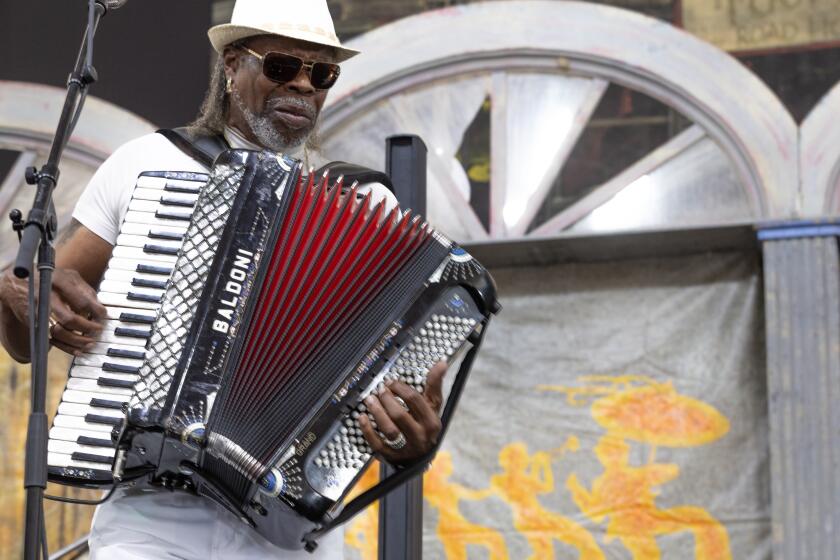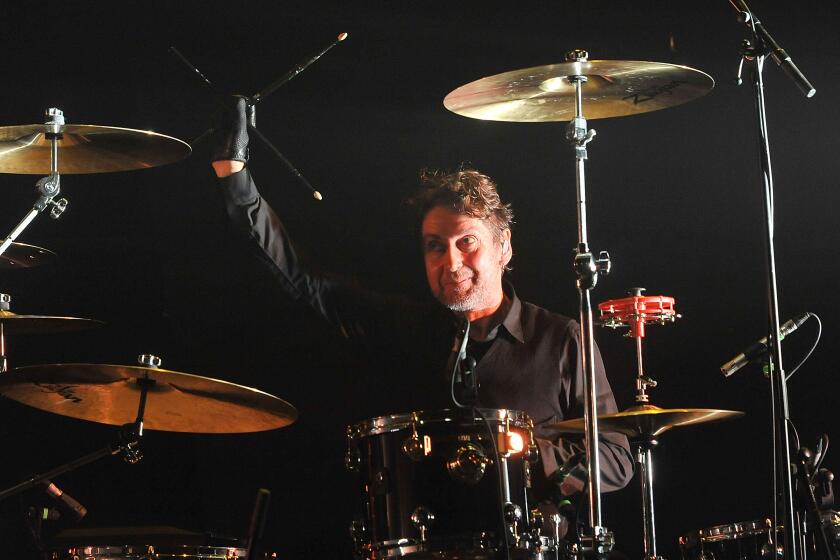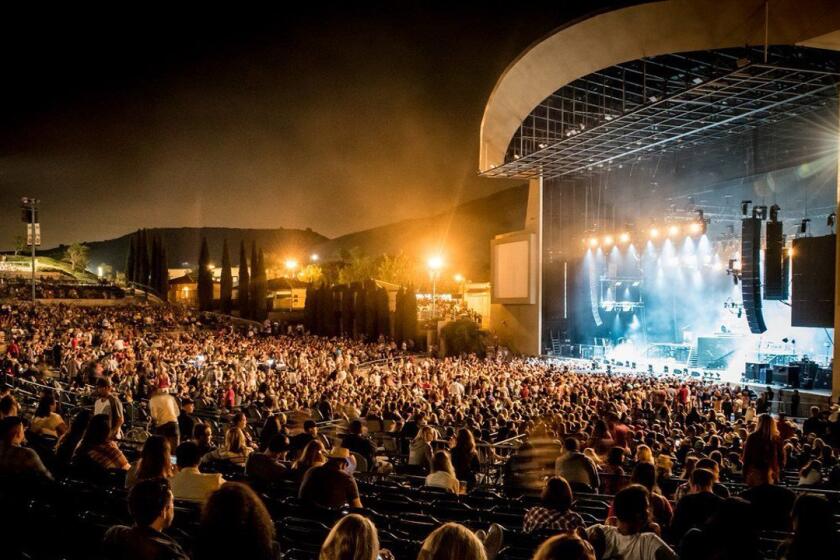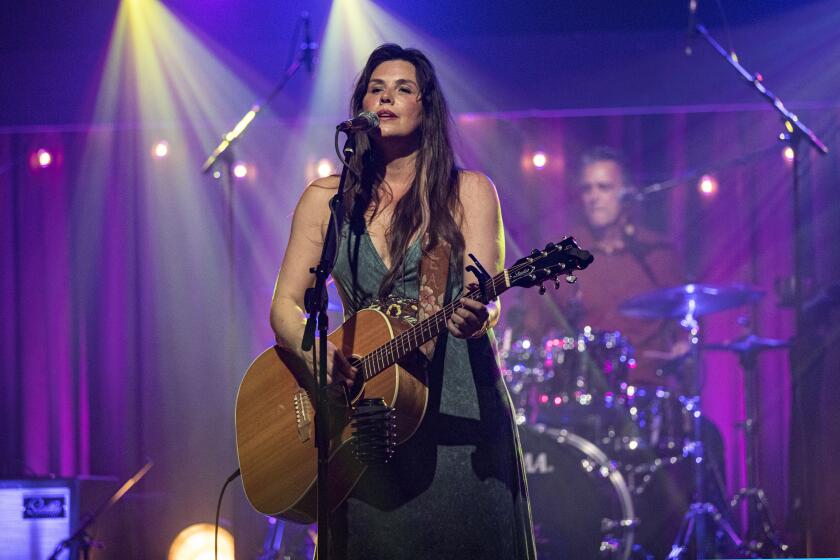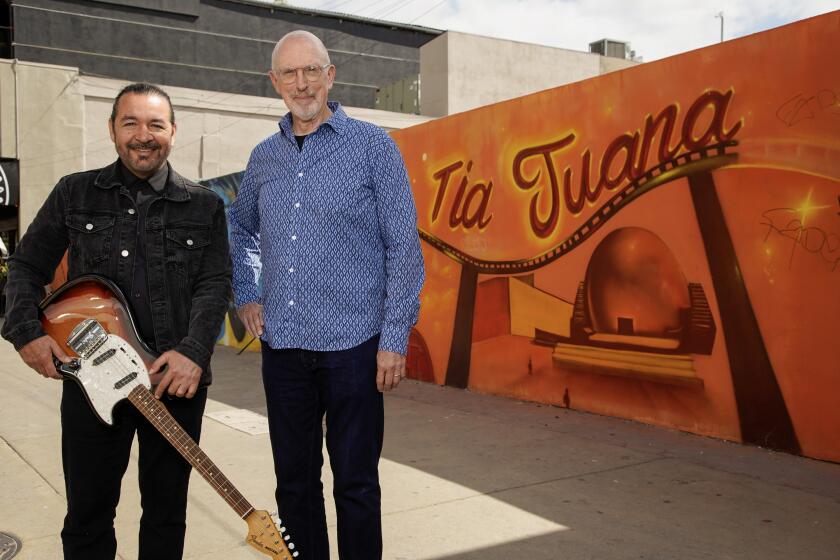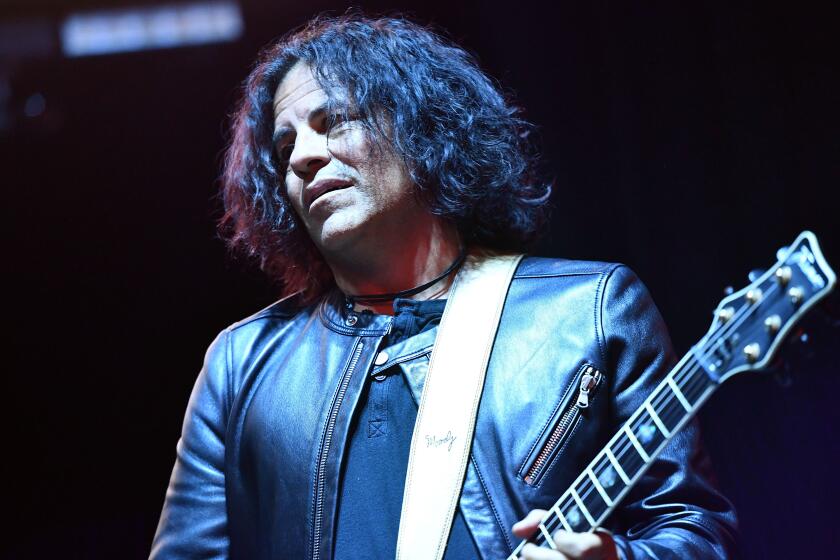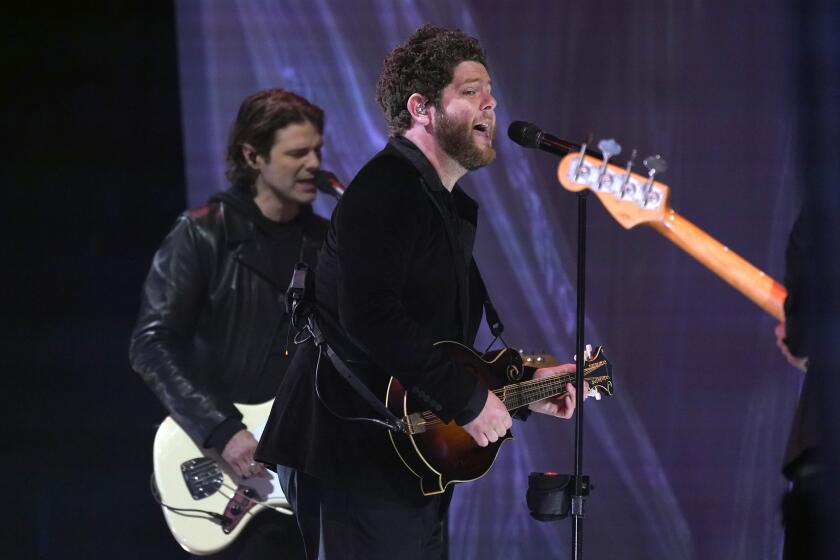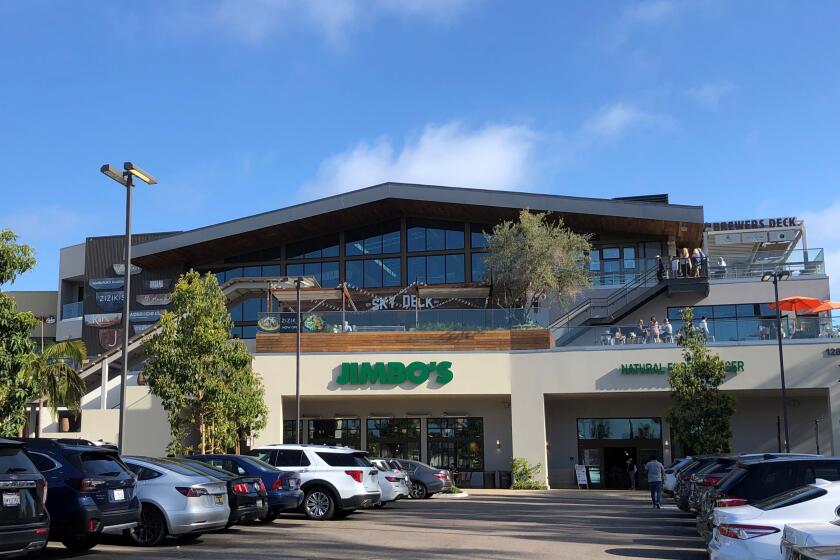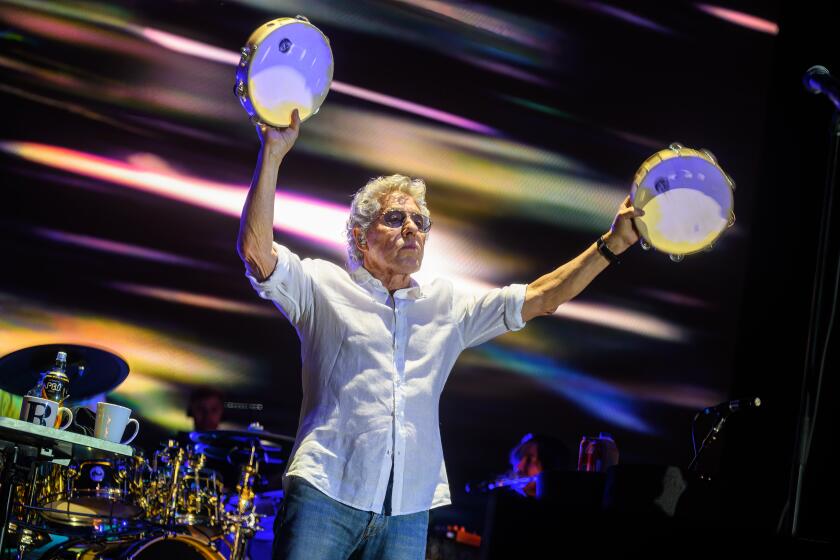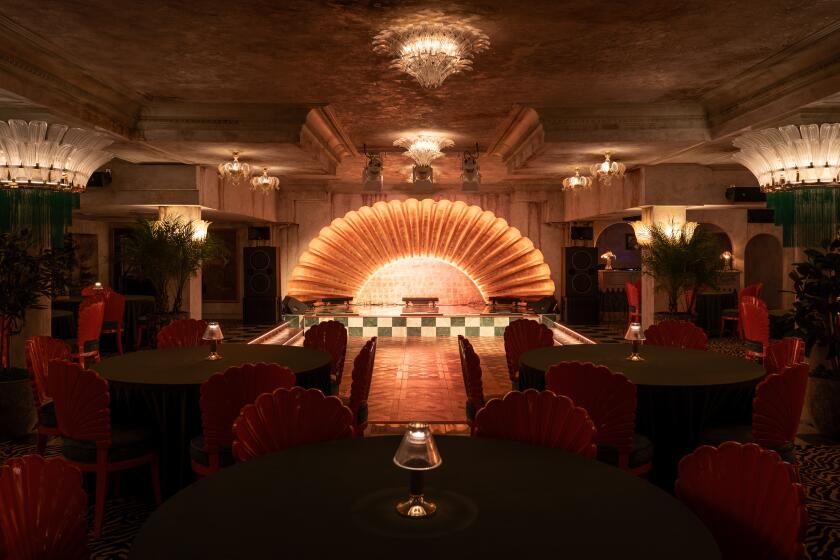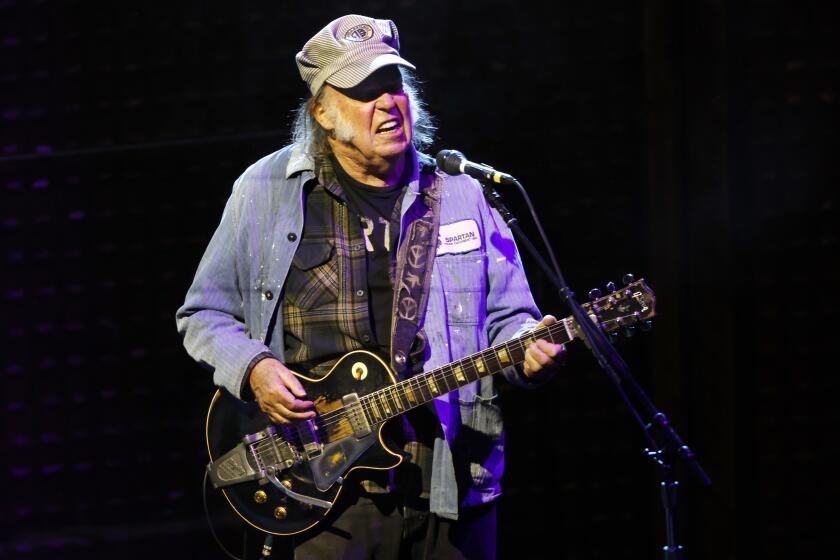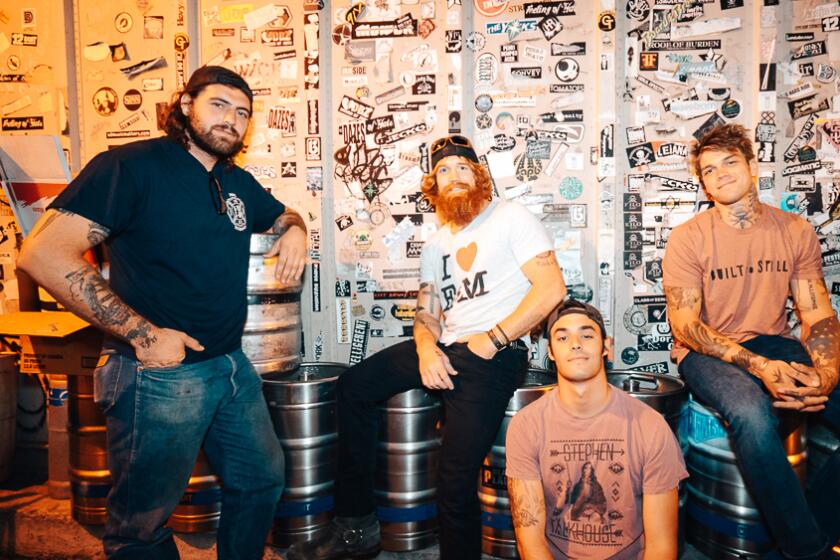Two decades of memorable quotes from Slash
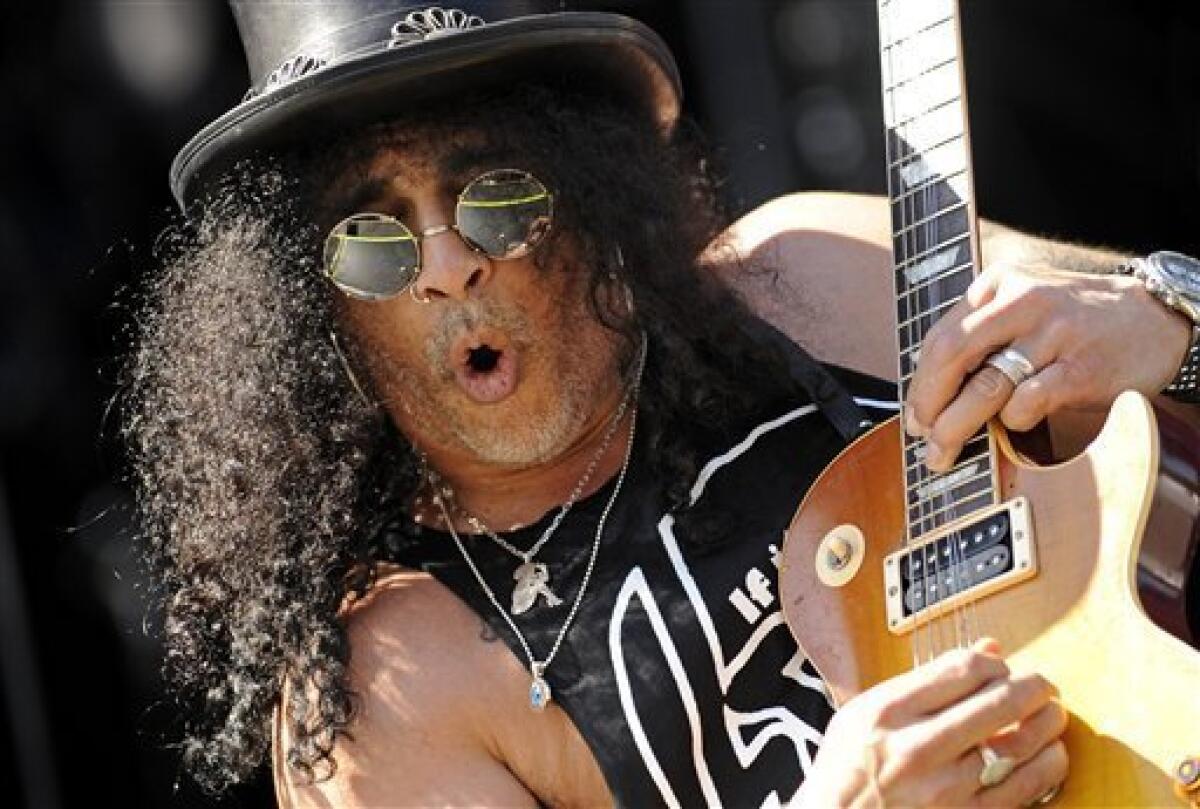
The partially reunited Guns N’ Roses isn’t doing any print interviews, but no problem. Here’s Slash on the record in Union-Tribune interviews from 1992-2014
The revamped Guns N’ Roses isn’t doing any print interviews for its ongoing reunion tour, which features a reunion of three of the band’s five core members and stops Monday at San Diego’s Qualcomm Stadium. But no problem. Here’s what GNR lead guitarist, Slash (born: Saul Hudson) — now back on board in the band after 23 years— had to say in Union-Tribune interviews conducted between 1992 and 2014.
Guns N’ Roses, with opening act to be announced
When: 7 p.m. Monday
Where: Qualcomm Stadium, Mission Valley
Tickets: $45-$350, plus service charges; “official platinum seats” are $350-$435
Phone: (800) 754-3000
Online: ticketmaster.com
Stardom: “The ‘rock star’ trip can be a little bit overwhelming, but — at the same time — I really don’t give a s--- about the label, because I know it’s a real fickle one; the ‘flavor of the month’ kind of thing. We happen to (be) the flavor of the month for a little while now, you know.”
Collaborating with Ray Charles on the soundtrack to the Oscar-winning 2004 music-bio film, “Ray”: “I was nervous every time I had to do any of that stuff (with Charles), every time I'd have him listen to a take I'd done. One time, we were playing for the soundtrack to the movie, and he was so easygoing and really took me under his wing, as nervous as I was. ... He just got me up and running. I was going through a period of no focus; I had nothing to look forward to. It just seemed kind of dead, and I was going through a period where I just wasn't interested in anything, and then he gave me something to work toward.”
Starting concerts hours late: “We (GNR) always get attacked as (being) irresponsible and not considerate to our fans and stuff. It’s not that. We’re a late-night rock ’n’ roll band, always have been and always will be, and we always got (upset) that we went on at 9. (Now) we go on at 10:30 or 11 and put on the opening act later. It’s ‘stay out late’ and part of the rebellious thing.”
GNR’s many lineup changes: “I don’t think this band could survive any more personnel changes. The situation with Izzy was that he just didn’t want to make the effort, all the way around. There’s a lot of work involved; it’s not a gig where we show up and cruise through it. With (fired drummer) Steve (Adler), the whole ‘sex, drugs and rock ’n’ roll’ thing is great, but there comes a time where you have to concentrate on the craft. And Steve could never swallow the idea that he had to get his life together.”
Interviews: “I didn’t really think, or care, about what the public impression of me would be. It was quite the opposite; in certain instances I thought it was better just to (expletive) tell everybody to (expletive). I guess I perpetuated that whole image in some ways. Some years, I’d turn up for an interview with a bottle of Jack Daniel’s and be drunk, and I didn’t care. Other times, I’ve been prompted to have a more intellectual conversation.”
Jamming with guitar icon Les Paul in 1991: “It was a real humbling experience. Between him and his rhythm guitarist, my whole existence as a player was belittled. He's such an awesome technical guitarist; he plays in a style way beyond my years, to the point where I hardly even know where he's coming from. When you're around players like that, you're influenced constantly, even if it's subliminal. I jammed last year with (Irish blues-rock guitar hero) Rory Gallagher, and that was definitely an influential experience. These are all positive things that you retain, just because they're so worthwhile.”
“Slash,” his 2008 autobiography: “The sole motivation for the book was to straighten out a lot of the myths about Guns N' Roses that are still prevalent on the Internet and in unauthorized biographies. I'd love to sound like the book was sort of a deep statement for me. But, in all honesty, it wasn't. It's really everything that's on the surface; I'm way too introverted and shy to bare my soul.”
His reaction, as the son of an African-American mother, to GNR singer Axl Rose’s use of the n-word in the lyrics to the GNR song “One in a Million”: “I was offended. That was a brash, ignorant kind of statement Axl made. I knew where he was coming from, once he explained it, but that didn't validate it to make it worthy of putting on a record. We had issues. But the more issues we had, the more adamant he was about putting the song on there. I was hugely embarrassed that it was on something that my name was on. It was a tough little period.”
Overcoming drug addiction: “The 1990s are a blur... Fortunately, what I do didn’t rest on my ‘extra curricular’ activities. In other words, I wasn’t motivated to play because of (drugs). So, when I quit, it was a long struggle to get to that point. But I really just got tired, fed up and ashamed of being so dependent on so many things. It was definitely a relief to be able to get past that. All the extra energy and time I would have spent in a pub or down at the dealer’s house really went back into music. I’ve spent much more time playing, writing and recording, so it’s been a real bonus. A lot of my peers and heroes I’ve met over the years — when they stopped using — they had a hard time creating and performing, because it was such a part of their creative experience. Some of those people are peers and the same age as me. But most of them are people from the ’70s, when chemical abuse was such a natural part of the culture that you didn’t realize what you were getting into.”
Motivation: “It's about the kids that come to the gigs. Those are the only people you have to impress. You make a record for yourself, and the record is always a means to go out and perform, and that's what you're spending all your time doing. When you go out and perform a set and everybody gets off on it, that's why you do what you do and put up with all the other BS.”
Lessons learned: “It wasn't till people started writing about us that we (GNR) realized we were against the grain. But as far as rock and attitude, we've always taken it to the limit, not because we wanted to shock anybody but because we thought it was cool. There are so many bands out there that are dangerous for 45 minutes (onstage), and then go home and read the paper and have tea. You can’t worry about (going too far). You can’t sit there and analyze it. I guess we’re one of those bands that’s learned everything from our mistakes.”
george.varga@sduniontribune.com
RELATED
View the Video Guns N' Roses kicks off two nights at Dodger Stadium
Get U-T Arts & Culture on Thursdays
A San Diego insider’s look at what talented artists are bringing to the stage, screen, galleries and more.
You may occasionally receive promotional content from the San Diego Union-Tribune.

